Princeton Studies in American Politics: Historical, International, and Comparative Perspectives76
Paul Frymer, Suzanne Mettler, and Eric Schickler, Series Editors
Ira Katznelson, Martin Shefter, and Theda Skocpol, Founding Series Editors
The series publishes exemplary books on American politics that employ a variety of approaches but have as a commonality the use of historical evidence. The series includes both established and emerging experts in the field, and features books of scholarly and general interest.
-

Ongoing struggles over core principles of democratic governance
-

Why Americans favor progressive taxation in principle but not in practice
-

How large American retailers outgrew the capacity of government to regulate them
-
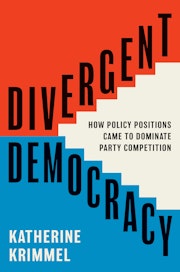
An innovative examination of the shift by American political parties toward issue-based differentiation
-
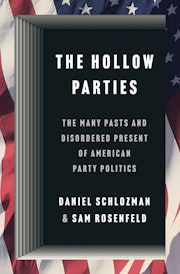
A major history from the Founding to our embittered present that “explains the void” (Politico) at the center of America’s political parties
Featured on The Ezra Klein Show and The Weekly Show with Jon Stewart -
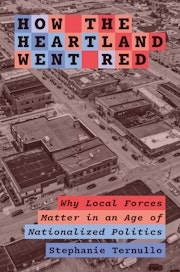
How local contexts help us understand why White voters in America’s heartland are shifting to the right
-
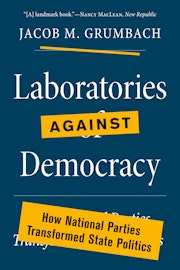
As national political fights are waged at the state level, democracy itself pays the price
-

How the NRA became a political juggernaut by influencing the behaviors and beliefs of everyday Americans
-
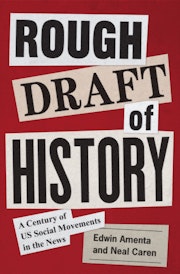
A comprehensive account of the media's coverage of social movements in the United States
-
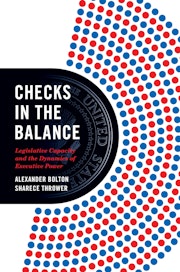
How access to resources and policymaking powers determines the balance of power between the legislative and executive branches
-
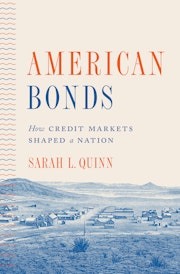
How the American government has long used financial credit programs to create economic opportunities
-
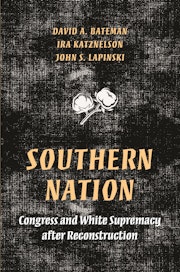
How southern members of Congress remade the United States in their own image after the Civil War
-
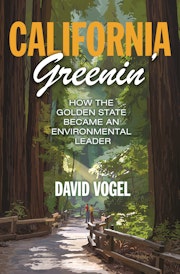
A political history of environmental policy and regulation in California, from the Gold Rush to the present
-
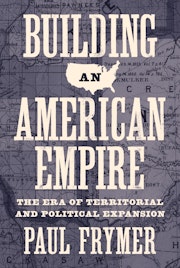
How American westward expansion was governmentally engineered to promote the formation of a white settler nation
-
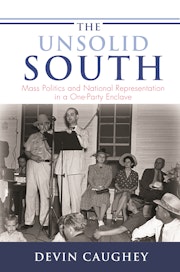
During the Jim Crow era, the Democratic Party dominated the American South, presiding over a racially segregated society while also playing an outsized role in national politics. In this compelling book, Devin Caughey provides an...
-

Notwithstanding the myriad forms of government assistance to American business, the relationship of business to politics in the United States remains a highly antagonistic one, characterized by substantial mutual distrust. This...
-
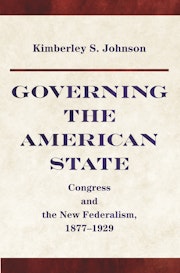
The modern, centralized American state was supposedly born in the Great Depression of the 1930s. Kimberley S. Johnson argues that this conventional wisdom is wrong. Cooperative federalism was not born in a Big Bang, but instead emerged...
-
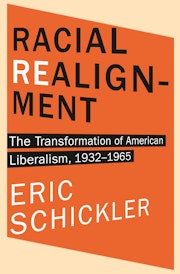
Few transformations in American politics have been as important as the integration of African Americans into the Democratic Party and the Republican embrace of racial policy conservatism. The story of this partisan realignment on race...
-
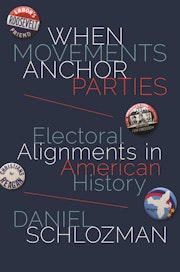
Throughout American history, some social movements, such as organized labor and the Christian Right, have forged influential alliances with political parties, while others, such as the antiwar movement, have not. When Movements Anchor...
-
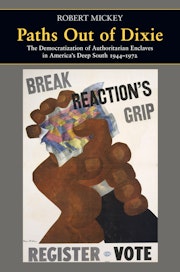
The transformation of the American South--from authoritarian to democratic rule--is the most important political development since World War II. It has re-sorted voters into parties, remapped presidential elections, and helped polarize...
-
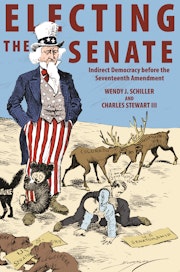
How U.S. senators were chosen prior to the Seventeenth Amendment—and the consequences of Constitutional reform
-
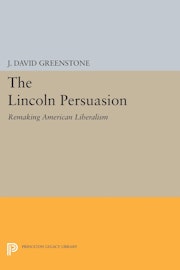
In this, his last work, J. David Greenstone provides an important new analysis of American liberalism and of Lincoln's unique contribution to the nation's political life. Greenstone addresses Louis Hartz's well-known claim that a...
-

The contemporary debate over racial classification has been dominated by fringe voices in American society. Cries from the right say history should be abrogated and public policy made color-blind, while zealots of the left insist that...
-
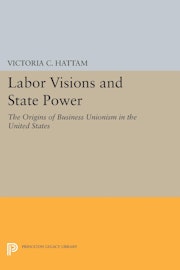
Why has labor played a more limited role in national politics in the United States than it has in other advanced industrial societies? Victoria Hattam demonstrates that voluntarism, as American labor's policy was known, was the American...
-

From the Outside In examines the profound impact of World War II on American government. The book argues that the wartime and immediate postwar experiences of the 1940s transformed and redirected the policies and government institutions...
-
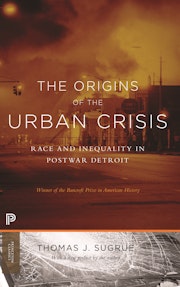
The reasons behind Detroit’s persistent racialized poverty after World War II
-
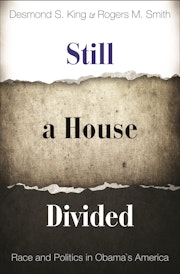
Why race remains the central political issue in America today
-
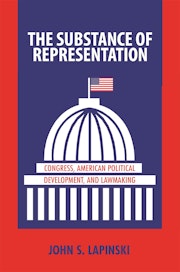
Lawmaking is crucial to American democracy because it completely defines and regulates the public life of the nation. Yet despite its importance, political scientists spend very little time studying the direct impact that the politics...
-
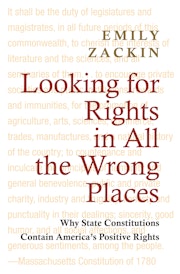
Unlike many national constitutions, which contain explicit positive rights to such things as education, a living wage, and a healthful environment, the U.S. Bill of Rights appears to contain only a long list of prohibitions on...
-
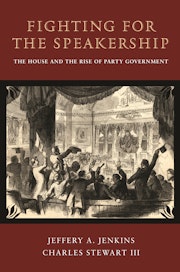
The Speaker of the House of Representatives is the most powerful partisan figure in the contemporary U.S. Congress. How this came to be, and how the majority party in the House has made control of the speakership a routine matter, is...
-
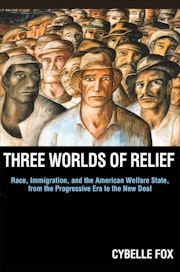
Three Worlds of Relief examines the role of race and immigration in the development of the American social welfare system by comparing how blacks, Mexicans, and European immigrants were treated by welfare policies during the Progressive...
-
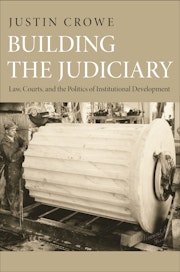
How did the federal judiciary transcend early limitations to become a powerful institution of American governance? How did the Supreme Court move from political irrelevance to political centrality? Building the Judiciary uncovers the...
-
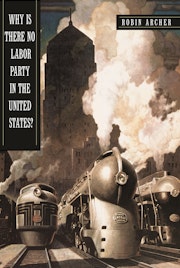
Why is the United States the only advanced capitalist country with no labor party? This question is one of the great enduring puzzles of American political development, and it lies at the heart of a fundamental debate about the nature...
-
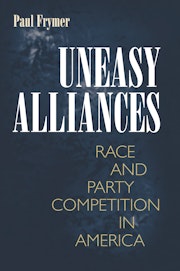
Uneasy Alliances is a powerful challenge to how we think about the relationship between race, political parties, and American democracy. While scholars frequently claim that the need to win elections makes government officials...
-
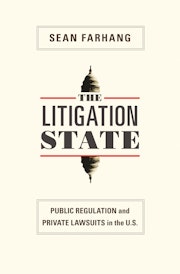
Of the 1.65 million lawsuits enforcing federal laws over the past decade, 3 percent were prosecuted by the federal government, while 97 percent were litigated by private parties. When and why did private plaintiff-driven litigation...
-

How the FDA became the world's most powerful regulatory agency
-
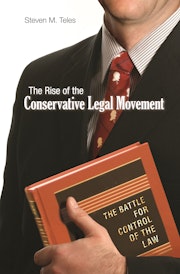
Starting in the 1970s, conservatives learned that electoral victory did not easily convert into a reversal of important liberal accomplishments, especially in the law. As a result, conservatives' mobilizing efforts increasingly turned...
-
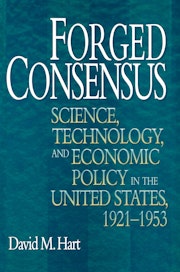
In this thought-provoking book, David Hart challenges the creation myth of post--World War II federal science and technology policy. According to this myth, the postwar policy sprang full-blown from the mind of Vannevar Bush in the form...
-
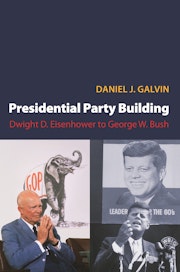
Modern presidents are usually depicted as party "predators" who neglect their parties, exploit them for personal advantage, or undercut their organizational capacities. Challenging this view, Presidential Party Building demonstrates...
-
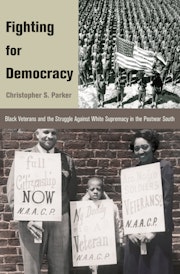
How military service led black veterans to join the civil rights struggle
-
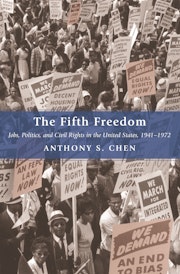
Where did affirmative action in employment come from? The conventional wisdom is that it was instituted during the Johnson and Nixon years through the backroom machinations of federal bureaucrats and judges. The Fifth Freedom presents a...
-
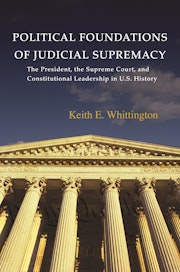
Should the Supreme Court have the last word when it comes to interpreting the Constitution? The justices on the Supreme Court certainly seem to think so--and their critics say that this position threatens democracy. But Keith...
-

More than any other advanced industrial democracy, the United States is besieged by firearms violence. Each year, some 30,000 people die by gunfire. Over the course of its history, the nation has witnessed the murders of beloved public...
-
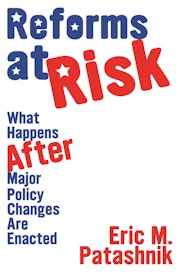
Reforms at Risk is the first book to closely examine what happens to sweeping and seemingly successful policy reforms after they are passed. Most books focus on the politics of reform adoption, yet as Eric Patashnik shows here, the...
-
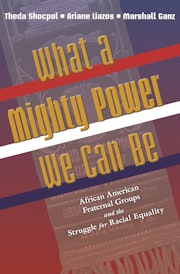
From the nineteenth through the mid-twentieth centuries, millions of American men and women participated in fraternal associations--self-selecting brotherhoods and sisterhoods that provided aid to members, enacted group rituals, and...
-
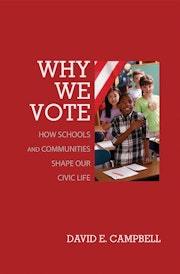
Why do more people vote--or get involved in other civic and political activities--in some communities than in others? Why We Vote demonstrates that our communities shape our civic and political engagement, and that schools are...
-
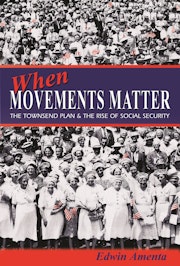
When Movements Matter accounts for the origins of Social Security as we know it. The book tells the overlooked story of the Townsend Plan--a political organization that sought to alleviate poverty and end the Great Depression through a...
-
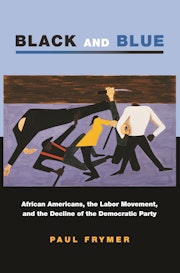
In the 1930s, fewer than one in one hundred U.S. labor union members were African American. By 1980, the figure was more than one in five. Black and Blue explores the politics and history that led to this dramatic integration of...
-
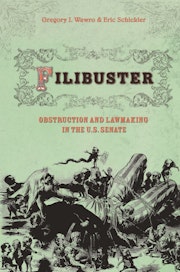
Parliamentary obstruction, popularly known as the "filibuster," has been a defining feature of the U.S. Senate throughout its history. In this book, Gregory J. Wawro and Eric Schickler explain how the Senate managed to satisfy its...
-
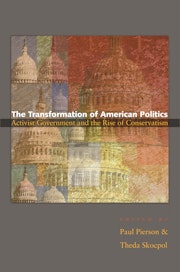
The contemporary American political landscape has been marked by two paradoxical transformations: the emergence after 1960 of an increasingly activist state, and the rise of an assertive and politically powerful conservatism that...
-
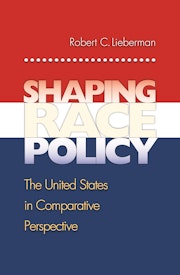
Shaping Race Policy investigates one of the most serious policy challenges facing the United States today: the stubborn persistence of racial inequality in the post-civil rights era. Unlike other books on the topic, it is comparative...
-
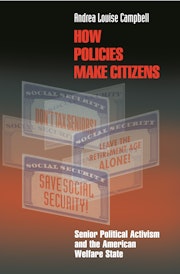
Some groups participate in politics more than others. Why? And does it matter for policy outcomes? In this richly detailed and fluidly written book, Andrea Campbell argues that democratic participation and public policy powerfully...
-
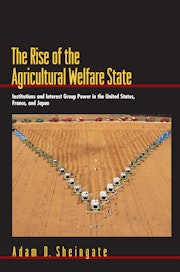
A long-dominant reading of American politics holds that public policy in the United States is easily captured by special interest groups. Countering this view, Adam Sheingate traces the development of government intervention in...
-
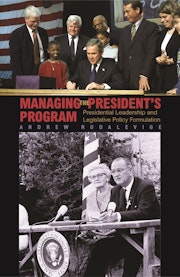
The belief that U.S. presidents' legislative policy formation has centralized over time, shifting inexorably out of the executive departments and into the White House, is shared by many who have studied the American presidency. Andrew...
-
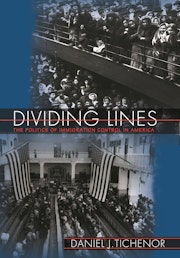
Immigration is perhaps the most enduring and elemental leitmotif of America. This book is the most powerful study to date of the politics and policies it has inspired, from the founders' earliest efforts to shape American identity to...
-
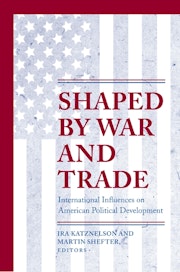
In the twenty-first century, globalization poses major challenges to the key players in U.S. domestic politics--challenges similar to many that Americans have faced from abroad since the nation's founding. But it is only in recent...
-
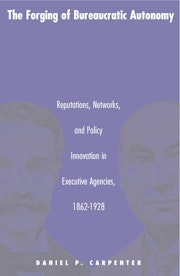
Until now political scientists have devoted little attention to the origins of American bureaucracy and the relationship between bureaucratic and interest group politics. In this pioneering book, Daniel Carpenter contributes to our...
-
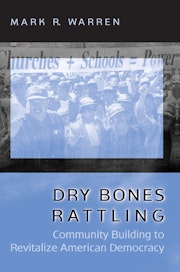
Dry Bones Rattling offers the first in-depth treatment of how to rebuild the social capital of America's communities while promoting racially inclusive, democratic participation. The Industrial Areas Foundation (IAF) network in Texas...
-
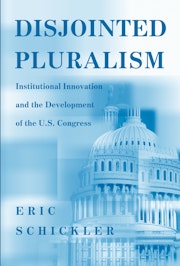
From the 1910 overthrow of "Czar" Joseph Cannon to the reforms enacted when Republicans took over the House in 1995, institutional change within the U.S. Congress has been both a product and a shaper of congressional politics. For...
-
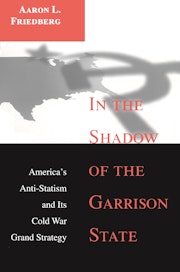
War--or the threat of war--usually strengthens states as governments tax, draft soldiers, exert control over industrial production, and dampen internal dissent in order to build military might. The United States, however, was founded on...
-
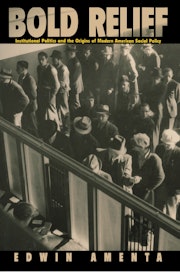
According to conventional wisdom, American social policy has always been exceptional--exceptionally stingy and backwards. But Edwin Amenta reminds us here that sixty years ago the United States led the world in spending on social...
-
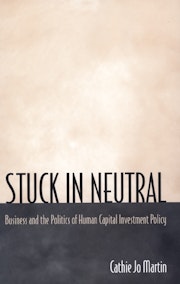
According to conventional wisdom, big business wields enormous influence over America's political agenda and is responsible for the relatively limited scale of the country's social policies. In Stuck in Neutral, however, Cathie Jo...
-
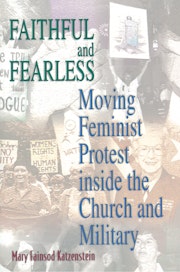
Riots and demonstrations, the lifeblood of American social and political protest in the 1960s, are now largely a historical memory. But Mary Fainsod Katzenstein argues that protest has not disappeared--it has simply moved off the...
-
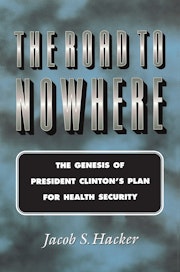
During the 1992 presidential campaign, health care reform became a hot issue, paving the way for one of the most important yet ill-fated social policy initiatives in American history: Bill Clinton's 1993 proposal for comprehensive...
-
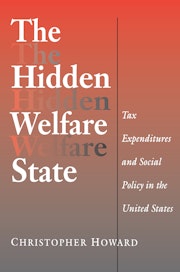
Despite costing hundreds of billions of dollars and subsidizing everything from homeownership and child care to health insurance, tax expenditures (commonly known as tax loopholes) have received little attention from those who study...
-

Moral reform movements claiming to protect children began to emerge in the United States over a century ago, most notably when Anthony Comstock and his supporters crusaded to restrict the circulation of contraception, information on the...
-
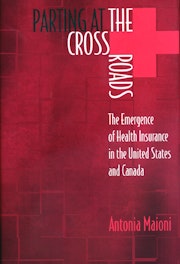
As almost all newspaper or magazine readers know, Canada figured prominently in the turbulent U.S. debates over health care reform in the early Clinton presidency. Furthermore, future news analysts and policymakers will undoubtedly...
-
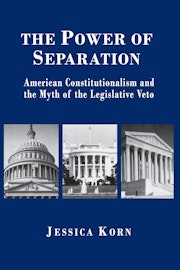
Jessica Korn challenges the notion that the eighteenth-century principles underlying the American separation of powers system are incompatible with the demands of twentieth-century governance. She demostrates the continuing relevance of...
-
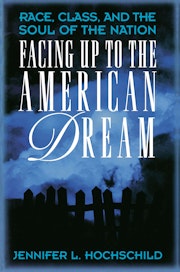
The ideology of the American dream--the faith that an individual can attain success and virtue through strenuous effort--is the very soul of the American nation. According to Jennifer Hochschild, we have failed to face up to what that...
-

Wyoming became the first American state to adopt female suffrage in 1869--a time when no country permitted women to vote. When the last Swiss canton enfranchised women in 1990, few countries barred women from the polls. Why did...
-
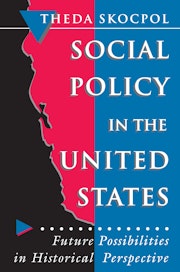
Health care, welfare, Social Security, employment programs--all are part of ongoing national debates about the future of social policy in the United States. In this wide-ranging collection of essays, Theda Skocpol shows how historical...
-
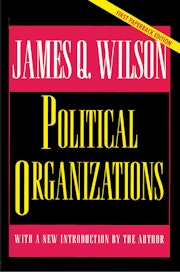
A major work by one of America's eminent political scientists, Political Organizations has had a profound impact on how we view the influence of interest groups on policymaking. James Wilson wrote this book to counter two ideas: that...
-
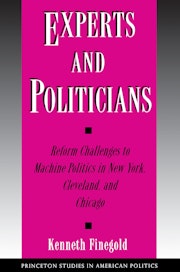
During the Progressive Era, reform candidates in New York, Cleveland, and Chicago challenged the status quo--with strikingly different results: brief triumph in New York, sustained success in Cleveland, and utter failure in Chicago....
-

What difference does a written constitution make to public policy? How have women workers fared in a nation bound by constitutional principles, compared with those not covered by formal, written guarantees of fair procedure or equitable...
-

Prisoners of Myth is the first comprehensive history of the Tennessee Valley Authority from its creation to the present day. It is also a telling case study of organizational evolution and decline. Building on Philip Selznick's classic...
-
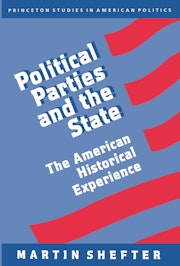
This book collects a number of Martin Shefter's most important articles on political parties. They address three questions: Under what conditions will strong party organizations emerge? What influences the character of parties--in...